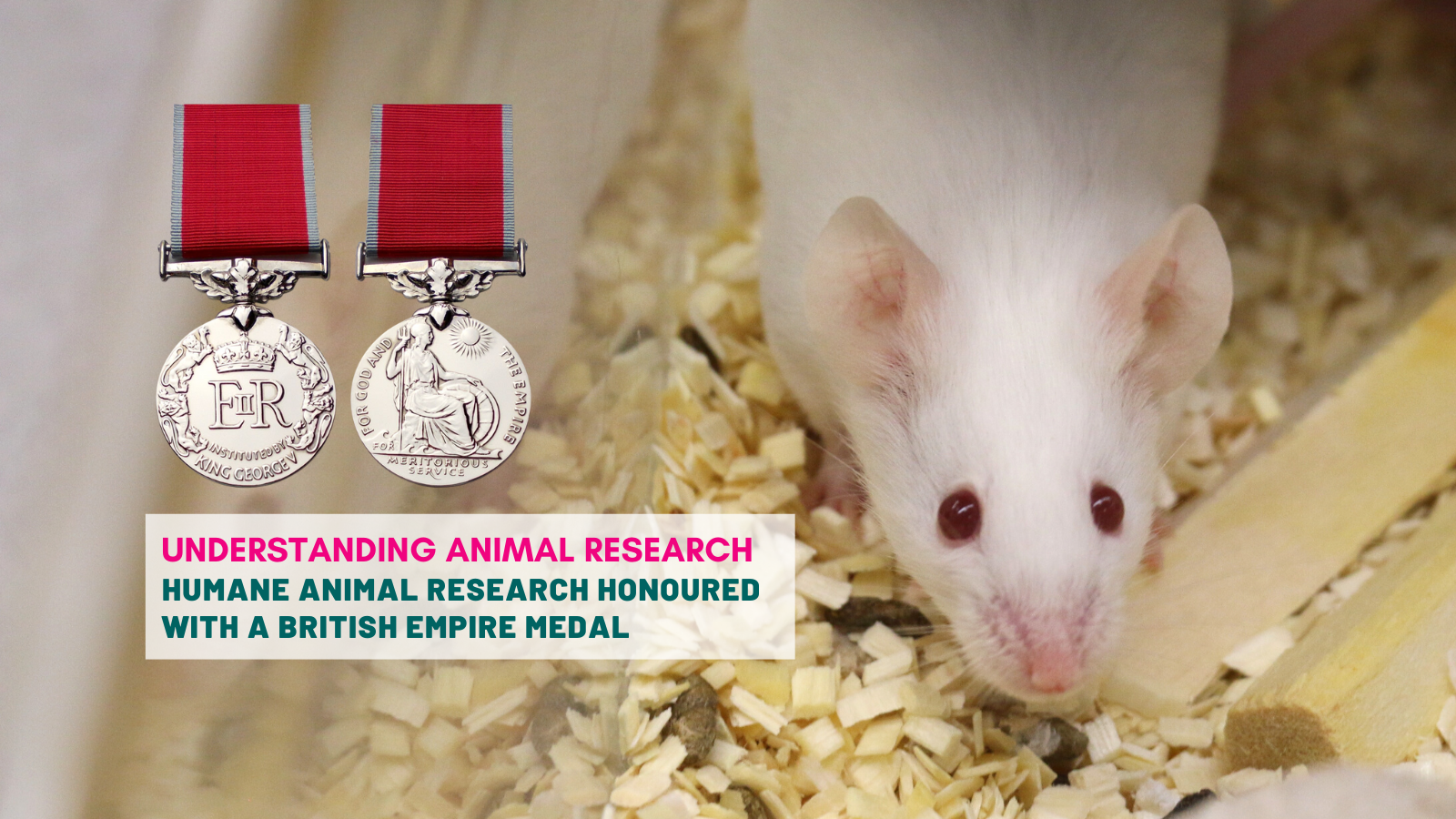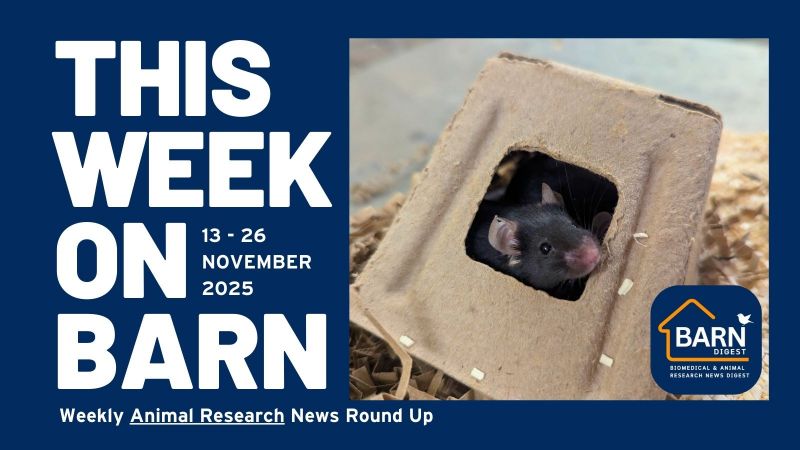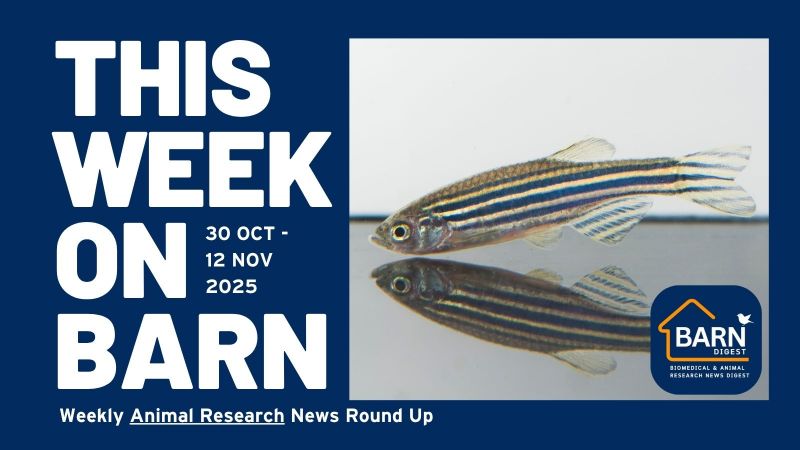
To be singled out and featured on the first Birthday Honours list of King Charles III is an honour not given to many people. Caroline Chadwick, the Director of Biomedical Services at the University of Birmingham (now retired), was recognised with a British Empire Medal (BEM) for her work to advance the humane treatment of animals in research.
"I still have no idea where it's come from – who put me forward for this honour or anything like that," Caroline says, grinning widely. "This letter just comes to you, on nice crisp parchment paper.”
Caroline exudes friendliness and a down-to-earth humility; it is easy to see how her communication skills must contribute to team building and dialogue. Thoughtful management that acknowledges the work of every staff member seems to be a big part of her professional approach.
"I really don't consider this honour to be just mine," she says of the BEM. "I consider it's for everybody in animal research. And I think it's lovely that we can be acknowledged in this positive way because there's so much negativity out there."
The BEM is awarded for an outstanding achievement or service to the community that has a long-term, significant impact and stands out as an example to others. While King Charles' views on the importance of protecting animal welfare in the context of necessary research are not known, the annual honours lists are recommended by the Prime Minister and approved by the monarch. Caroline’s nomination can be considered a mark of the importance given to this work of establishing a culture of care in animal research.
As Caroline points out, despite strong efforts to minimise the use of animals in research by finding alternative research models, there are sometimes simply no viable alternatives to using animals. But as Caroline says, there's a world of ways of approaching animal research within a culture of care. Good cooperation between researchers and animal care staff is key, she says, and it benefits everyone.
She should know – she's been both.
"I started out as a researcher in Manchester at the CRUK Paterson Institute doing animal research and did that for several years. And then I swapped sides to become the manager of their animal facility, looking after the welfare of animals. And I stayed at the Paterson in Manchester for many years, and then in 2006 I moved to Birmingham University to become director of their animal facility."
"It was never an intentional journey," says Caroline of her career. "It just happened that way. But it gave me some important perspectives. I could understand the pressures that researchers are under and bring them the support and the knowledge that animal care staff have."
The goal: for animal care technicians and researchers to relate to each other – and to the animals – in an atmosphere of mutual respect, producing excellent and ethical research.
All research at the University of Birmingham is ethically reviewed and complies with the ARRIVE guidelines. This means there may be judgment calls – sometimes challenging ones. Sometimes, Caroline says, "You have to explain why a humane endpoint is a humane endpoint. Science might want two more days of experimental data, but it won’t happen if the animal is in distress. There is a balance between the science and the animal welfare.
Her focus: "Having an open and free conversation, which might be a difficult conversation, sometimes. Spending time explaining to people that there may be a better way of doing something rather than the way they've been doing it."
Caroline is especially proud of her role in helping to train a younger generation of animal care technicians and PhD students as confident, caring professionals who are equipped to ensure sound and ethical research. She also singles out her consistent emphasis on using painkillers for animals:
"We've done trials and it hasn't affected the scientific data. But for the animals, it has made a big difference."
The core lesson of her work: "If everybody does the best they can, thinking of the animal as an animal, a living being, then I think they will do great science and respect the animal that they're working with".
Everyone at UAR is absolutely delighted that Caroline Chadwick has been awarded a British Empire Medal (BEM) for services to Humane Animal Research.
"Animal research is a vital part of the scientific process to help us understand how our bodies work and respond to disease, and to develop new drugs. Throughout Caroline's scientific career, she has shown exceptional dedication to the promotion of the safe and humane practice of animal research. Through her work with the Laboratory Animal Science Association (LASA), Caroline has played an instrumental role in the implementation of the 3Rs, sharing expertise and promoting best practice across the biomedical research sector, nationally and internationally.
This award is extremely well deserved. Congratulations, Caroline!"
You may also enjoy:
Chair of UAR Council, Jeremy Pearson, awarded MBE
Last edited: 24 June 2024 16:36



